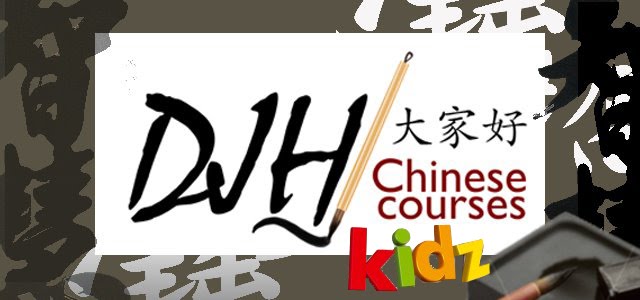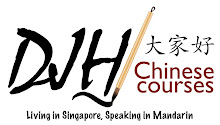Saturday, December 26, 2009
Colouring Page: Year ot the Tiger
* Courageous, active, and self-assured, a natural leader, passionate and independent.
* Rebellious and dynamic. A warrior and center of attention. Quick tempered but considerate. Affectionate but careless.
Symbolizes power, passion and daring.
This fearless and fiery fighter is revered as the sign that wards off the three main disasters of a household: fire, thieves and ghosts.
Monday, December 21, 2009
Thursday, December 17, 2009
学汉语热的背后 身份认同和文化自信哪里来?Behind the Chinese Boom, where are Self Identity and Culture?

女儿今年3岁,在莫斯科一所公立幼儿园上学。幼儿园里俄罗斯人占绝大多数,女儿很快学会了一些常用的俄语单词和句子。有一段时间,女儿不愿意去幼儿园了,更希望在家听我讲《西游记》、唱《读书郎》。幼儿园老师得知此事后,建议我买一个“中国娃娃”,准备将其同“俄罗斯娃娃”并排摆放在教室的壁柜上。从心理学的角度看,这样可以帮助建立女儿的自我身份认同,同时也可以增进俄罗斯小朋友对中国小朋友的了解和亲切感。
My daughter is 3 years old, attending a public kindergarten in Moscow. In the kindergarten, the majority is Russians, my daughter picked up some Russian vocabulary and daily sentences quickly. There was a period of time, my daughter refused to go to kindergarten. She preferred to stay at home to listen to my story telling of "Journey to th West " and singing of "The Scholar". When the kindergarten teach found out about this, she suggested me to buy a Chinese doll and it will be placed together with the Russian doll in the classroom shelf. In the view of psychology, this will develop a self identity for my daughter and also enhance the understanding towards a Chinese student for other children, closing up the distance between them.
可是,跑遍了莫斯科经营中国商品的大小商场,尽管随处可见中国产的布娃娃,但要么是金发、白皮肤、蓝眼睛的“欧美娃娃”,要么是卷发、黑皮肤、大眼睛的“非洲娃娃”,唯独没有黑发、黄皮肤、黑眼睛的“中国娃娃”。北京的热心朋友帮我四处寻找,发现国内商场也几乎是“洋娃娃”的天下。
I went around all shopping centers in Moscow selling Chinese products, China made dolls can be found everywhere, but either they are western dolls with blond hair, blue eyes, or African dolls with curly hair, black skin and big eyes. A China doll with black, yellow skin and black eyes is no where to be found. Friends in Beijing also helped me to look for a China doll, but they realized that shops are only filed with western dolls.
中国玩具厂商生产大量“洋娃娃”,可能是出于国外订单的原因,但在国内市场上难以觅得“中国娃娃”,却是一个值得思考的社会心理现象。从另一个方面说,“中国制造”缺少的不仅仅是“中国品牌”,还缺少具有中国特色的文化内涵。
Chinese toy manufacturers produce large number of western dolls due to overseas orders, but when a China doll is so difficult to be found even in China, it is a social prominent that worth some consideration. In other words, manufacturing in China is not only lacking in China brands but also lacking in Chinese culture.

当今,华人足迹遍及全球,孔子学院也遍及五大洲,但在国外还很少见到中国人开办的用汉语教学的学校,不少中国驻外人员和华侨华人的子女因此缺乏接受中国文化教育的机会。而在国内,不少幼儿中文还没学好,就被要求学习英语。
Today the presence of Chinese people has spread all over the world and many Confucius Institutions are set up in all continents,. Yet, we seldom see any schools that use Chinese as the medium for teaching, hence many children of Chinese who are based overseas do not have a chance to receive Chinese education. And within China, many young children are required to learn English before they can even do well in Chinese.
事实上,随着中国国力的增强和国际地位的提高,世界各国学习汉语的人越来越多。一位在俄罗斯读博士的中国留学生日前跟我聊起他遇到的一件尴尬事。一个俄罗斯人问他:“你练过武术吗?”博士摇头。俄罗斯人再问:“那你对《易经》、《庄子》有研究吗?”博士只好再摇头。俄罗斯人告诉博士,他正在学习汉语、练习中国武术,对中国茶文化、《易经》等也有所研究。俄罗斯人讲得头头是道,博士自叹弗如。
In actual case, as China becomes stronger and has a more prominent status in the international scene, there is an increase in the number of people learning Chinese. The other day, I chatted up with a Chniese student who is doing his PhD in Russia and he told me something embarrassing. A Russian asked him: "Have you practiced martial art?" He shook his head. "Do you know Yi Jing and Zhuang Zi?" He shook his head again. The Russian told him that he is learning Chinese and praticing Chinese martial art and he has interest in Chinese tea culture and Yi JIng. The Russian seemed to know so much about the Chinese culture and it is embarrassing for that student although he is a Chinese.
随着中国人对外交往的不断增多,相信这样的故事发生在不少中国人身上。我们对自己的文化有多少了解?对于我们的历史、文化和传统,我们自己是否足够珍视?与国外的“中国通”聊天,我们固然为中华文明的魅力感到骄傲,恐怕也常为自身修养的不足而汗颜。
As the interaction between Chinese and overseas increases, such stories happened to many Chinese people. How much do we understand our culture? Do we have enough appreciation towards our history, culture and tradition? When we talk to those foreign "Chinese Experts", we are indeed proud of our Chinese civilization, yet we are ashamed for not knowing enough of our own culture.
在学习国外先进文化的同时,增进对本民族历史文化的了解和自信,是一个民族走向复兴的必修课。当“软实力”成为时髦语汇之时,我们自身需首先建立起文化自信。只有这样,我们才有可能让中华文化真正获得强大的世界影响力。
As we learn about the cultures of those developed countries, it is important to understand and be confident of our own race, history and culture, in order for our people to work towards a prosperous society. When "soft skill" became a fashionable word, we have to establish the confidence in our own culture. Only with this, Chinese culture will then become strong and influential to the world.
Wednesday, December 9, 2009
Colouring Page: Giving Carnations
Thursday, December 3, 2009
PM Lee says teaching of Chinese needs to cater to range of abilities

HAVANA, CUBA: Singapore Prime Minister Lee Hsien Loong has said the teaching of the Chinese language has to cater to the changing landscape as well as the range of language backgrounds and learning abilities. http://www.channelnewsasia.com/stories/singaporelocalnews/view/1022362/1/.html | |||||||||||










